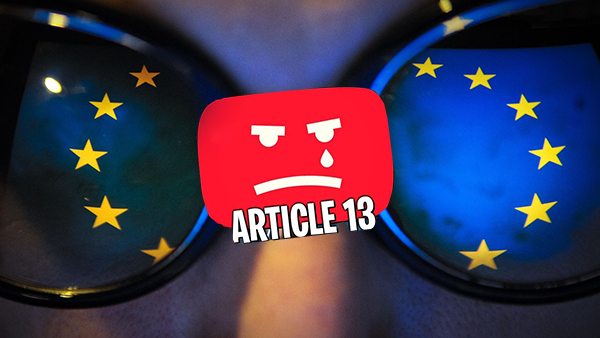A year ago, a law known as GDPR, an EU privacy law, was issued to give citizens the ability to control their personal data and affect how all Web sites are treated with user data. This law created widespread controversy on the Internet, but It seems that he will not be the only one in it.

In recent days, another EU law has appeared, targeting online content creators, known as Article 13.
"Article 13 is part of European copyright legislation created to better protect creativity and find effective ways for copyright holders to protect their content online."
If the EU agrees, Internet technology giants including Google, Microsoft and Facebook will have to install "effective techniques" to prevent copyright infringement. Basically, you will work on more sophisticated techniques to discover copyright or content scanner.
Like Content ID from YouTube, filters automatically detect whether there is a uploaded image, video, or other media content that violates current copyright. The difference is that platforms will have to automatically reject infringing content. Or pay the negotiated price of the content for use.
Of course, Article 13 will not only apply to YouTube. Websites that rely on user-generated content - such as Facebook, Twitter, Vimeo, and many others - will have to monitor what users upload closely. This action will carry all Internet platforms responsible for unsolicited content that violates current copyright. For example, if a user posts a video with copyrighted music on Instagram, Facebook will have to pay the owner of those rights.
And the same in all other platforms, if the application of this article companies will be from Google, Facebook, Twitter .. And the other in real trouble. So now these companies are counter-campaign to prevent this law.
"Article 13 is part of European copyright legislation created to better protect creativity and find effective ways for copyright holders to protect their content online."
If the EU agrees, Internet technology giants including Google, Microsoft and Facebook will have to install "effective techniques" to prevent copyright infringement. Basically, you will work on more sophisticated techniques to discover copyright or content scanner.
Like Content ID from YouTube, filters automatically detect whether there is a uploaded image, video, or other media content that violates current copyright. The difference is that platforms will have to automatically reject infringing content. Or pay the negotiated price of the content for use.
Of course, Article 13 will not only apply to YouTube. Websites that rely on user-generated content - such as Facebook, Twitter, Vimeo, and many others - will have to monitor what users upload closely. This action will carry all Internet platforms responsible for unsolicited content that violates current copyright. For example, if a user posts a video with copyrighted music on Instagram, Facebook will have to pay the owner of those rights.
And the same in all other platforms, if the application of this article companies will be from Google, Facebook, Twitter .. And the other in real trouble. So now these companies are counter-campaign to prevent this law.

